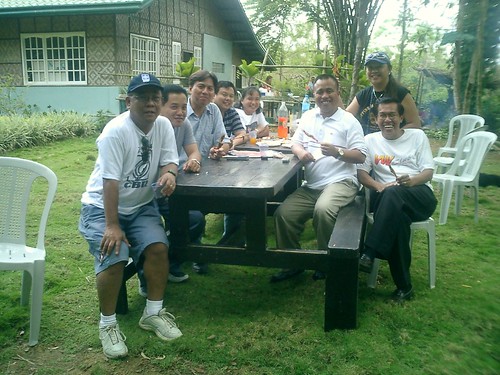Editorial : Empty doctrine

Executive Order No. 292, otherwise known as "The Administrative Code of 1987," was enacted during the time of President Corazon Aquino, while she was yet vested with sweeping powers, prior to the ratification of the 1987 Constitution. It retained and formalized the National Security Council (Title VII, Chapter 2), assigning to that agency the following responsibilities: "The formulation of integrated and rationalized national, foreign, military, political, economic, social and educational policies, programs, and procedures vital to the security of the state." Its members include the President, Vice President, the Executive Secretary, the Secretary of Foreign Affairs, the Secretary of Justice, the Secretary of Labor, the Secretary of Interior and Local Government, the Chief of Staff of the Armed Forces of the Philippines, the National Security Adviser, and such other government officers or private individuals that the President may appoint. Traditionally, beginning with President Carlos Garcia's invitation to former President Sergio Osmeña to be a member, former presidents have sat in the National Security Council.
Going back to the United States, which started the national security apparatus idea, it has periodically revised its national security doctrines, publishing these for the guidance of the American officials and the public, and the rest of the world.
The latest revision was undertaken by the present Bush administration. The principles behind the new doctrine boil down to the following salient points: an "Overview of America's International Strategy"; "Champion Aspirations for Human Dignity"; "Strengthen Alliances to Defeat Global Terrorism and Work to Prevent Attacks Against Us and Our Friends"; "Work With Others to Defuse Regional Conflicts"; "Prevent Our Enemies from Threatening Us, Our Allies, and Our Friends with Weapons of Mass Destruction"; "Ignite a New Era of Global Economic Growth through Free Markets and Free Trade"; "Expand the Circle of Development by Opening Societies and Building the Infrastructure of Democracy"; "Develop Agendas for Cooperative Action with the Other Main Centers of Global Power"; and "Transform America's National Security Institutions to Meet the Challenges and Opportunities of the Twenty-First Century."
These headings by themselves give a rather thorough overview of American strategic interests, available to friend or foe alike. Which leads us to ask: Where is the Philippine equivalent? The Philippine concept of national security seems to be more obsessed with cloak-and-dagger operations rather than with genuine policy-making. We have been subjected to the workings of a national security adviser; Norberto Gonzales is the latest in a line of advisers who seem to think they should simply dispense advice on a case-to-case basis, rather than according to the thought-out and spelled-out security interests of the country.
If, for example, the rescinded Venable contract was a matter of national security (which presumably it was, since the national security adviser signed it), why, then, did Executive Secretary Eduardo Ermita, Foreign Affairs Secretary Alberto Romulo, Justice Secretary Raul Gonzalez, all of whom are members of the National Security Council, all claim not to know about the contract? There are many questions that still need answering; but the most fundamental question of all is: Does the Philippines have a national security policy? If so, where is it? Even in broad strokes, the public has not been informed of one; neither has it been given access to such policy. Whichever, both cases are definitely wrong.







1 comment:
Everything is very open with a really clear description of the issues.
It was truly informative. Your website is extremely helpful.
Thanks for sharing!
Also visit my web site; best registry cleaner
Post a Comment